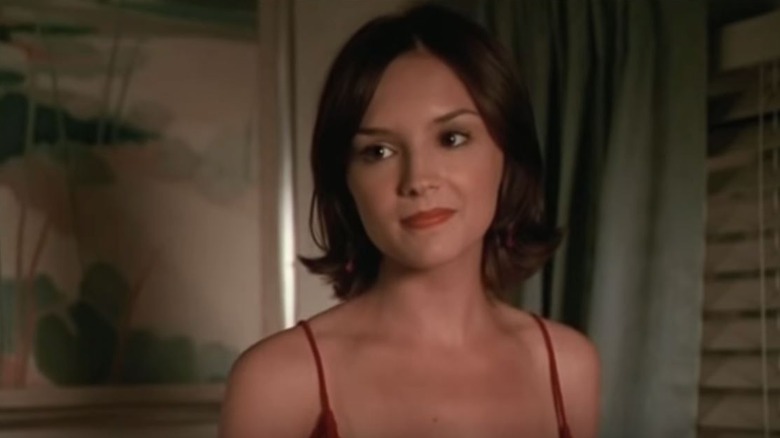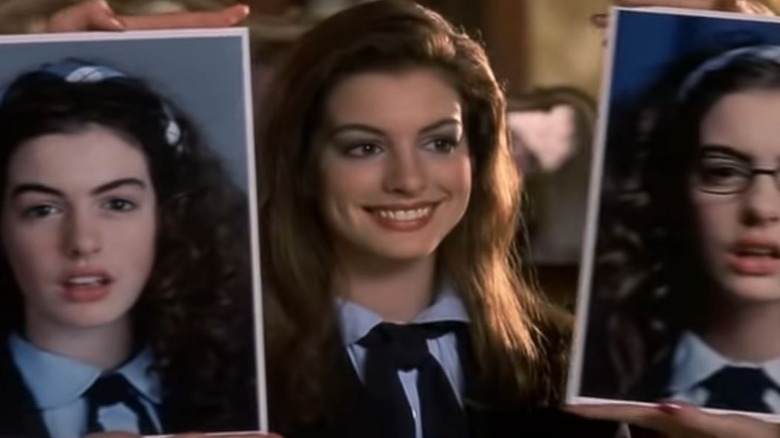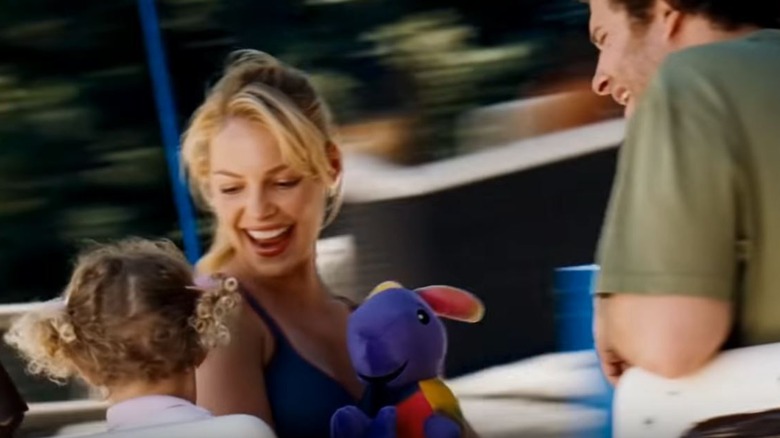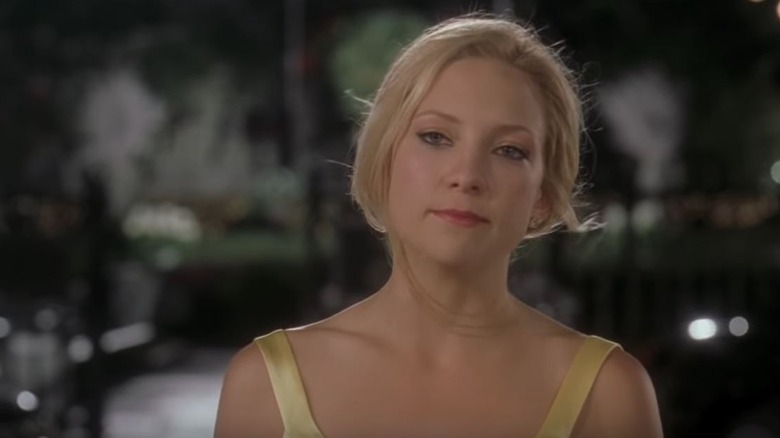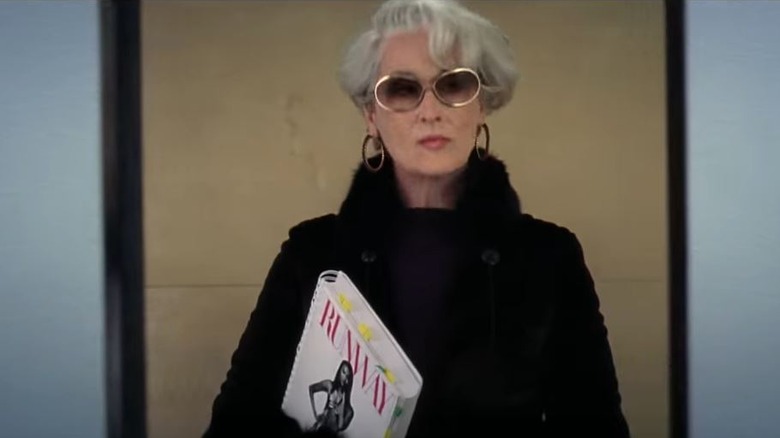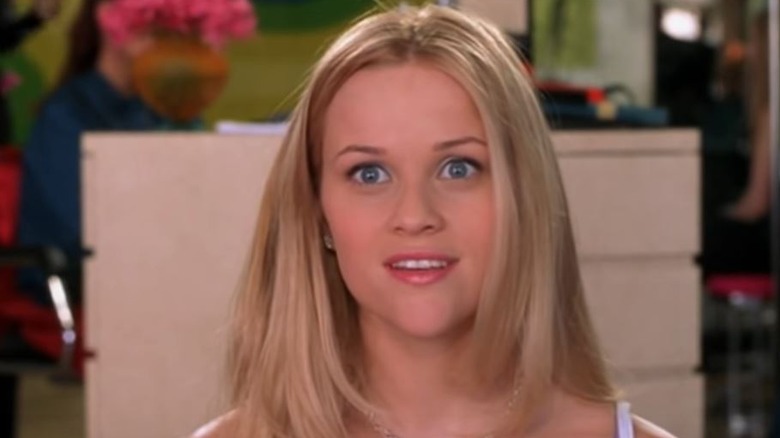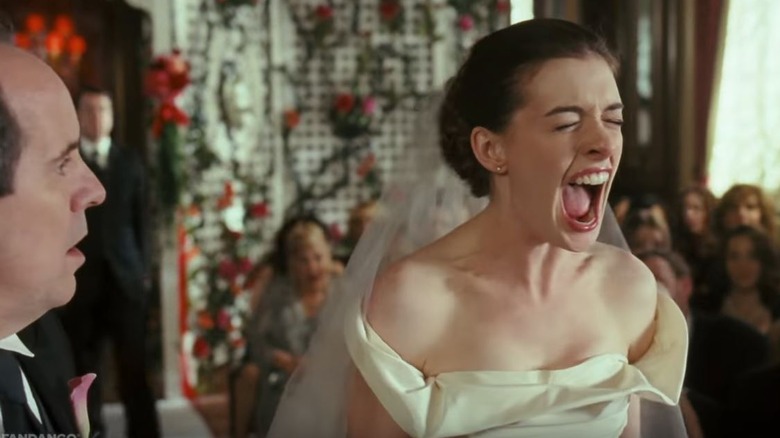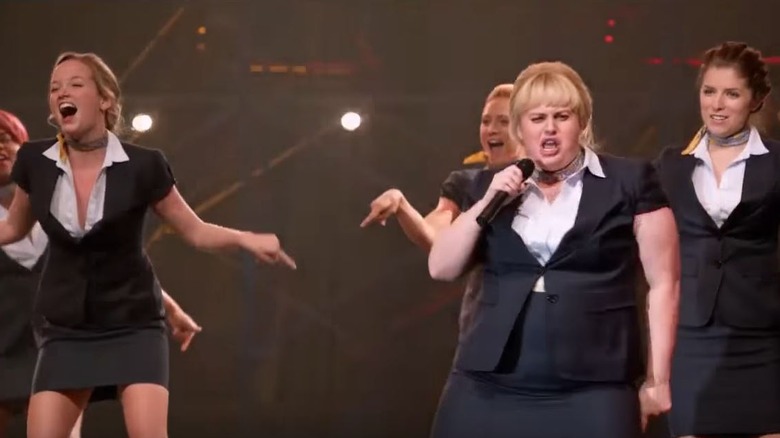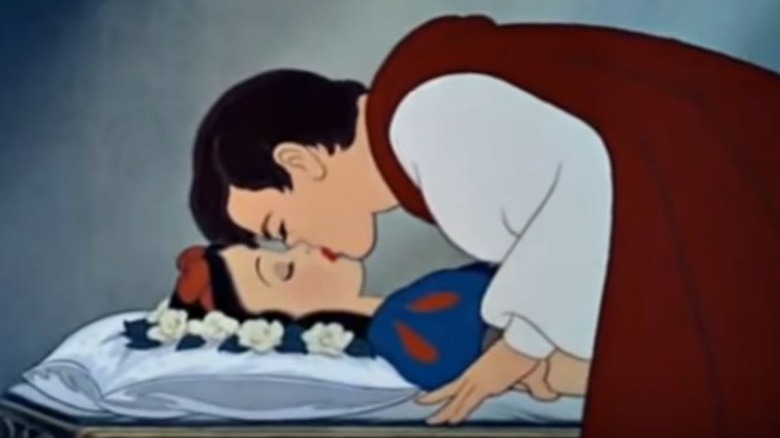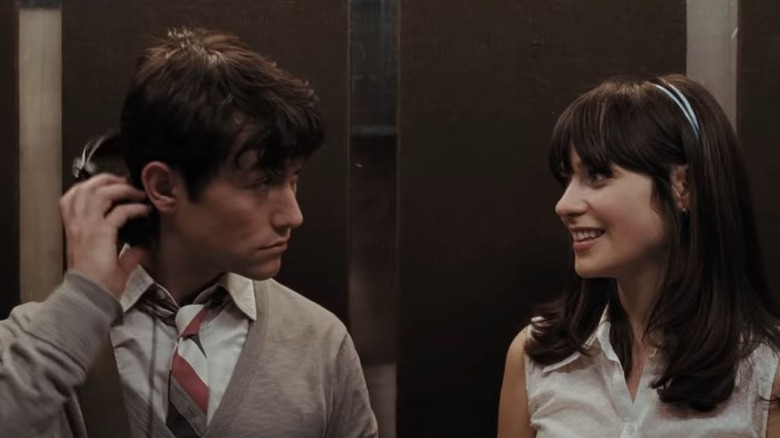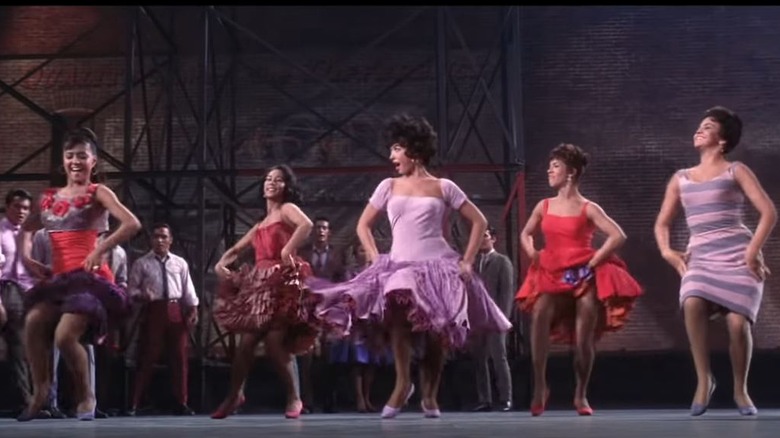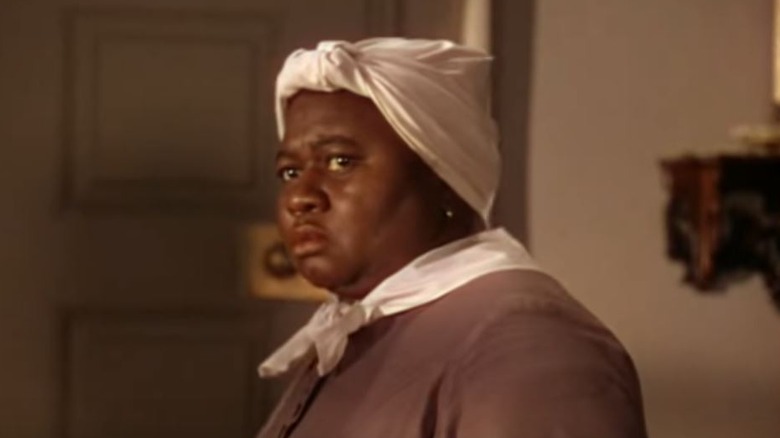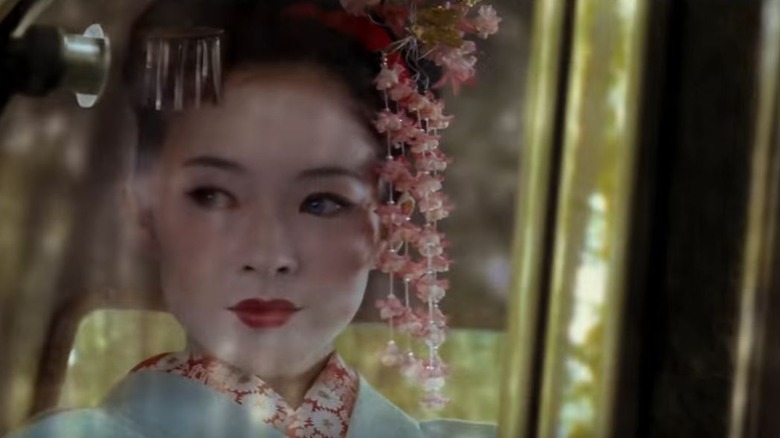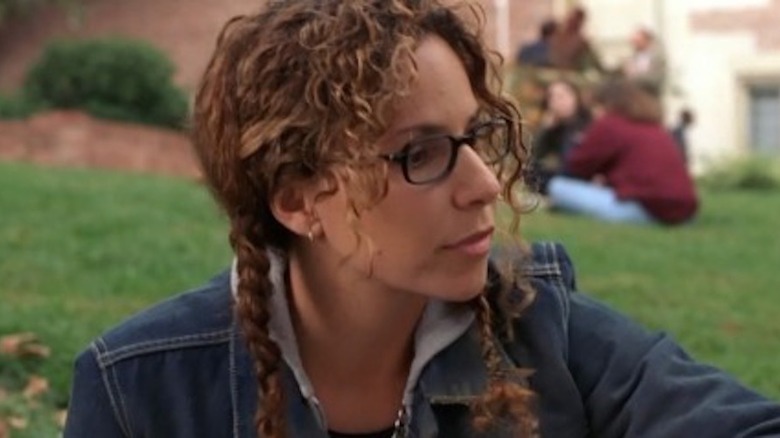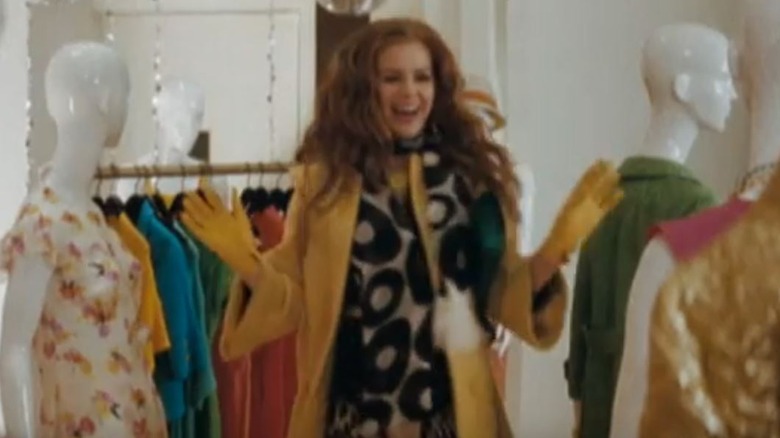Stereotypes About Women Hollywood Won't Let Go Of
Going to the movies can be a magical experience, but it can also be a frustrating one — especially for women. Women are constantly being bombarded with billboards and commercials and magazine ads telling them how to dress and behave, and movies only add to the pressure. Hollywood is one of the biggest culprits in upholding ideals of proper feminine qualities. For generations, women have been presented with stereotype after stereotype on the silver screen.
While this may have worked for our grandmothers, things have changed a lot in recent years. Women are fed up. Feminism has given women the right to vote and the right to have a career outside the home without raising eyebrows. Women are also pushing back against the sexism in Hollywood with the #MeToo movement. The 21st century is well underway, and it's high time that Hollywood started showing women in a better light. These stereotypes about women have long been pushed by Hollywood, and it is time for the film industry to let go of them.
A simple makeover is all it takes to totally transform your life
The movies make it seem so easy. Are you unhappy? Unpopular? Then all you need to do is change your look and people will love you! Hollywood makes it look like every woman is a caterpillar waiting to emerge from her cocoon into a butterfly. It's not the revelation that Mia is a princess in The Princess Diaries that totally upends her life, it's her newly straightened hair and her contacts. In She's All That, Laney goes from geek to chic after ditching her glasses.
The idea that looks are so important to a woman's self worth is such an established trope that we often forget just how offensive it is. What happened to inner beauty? And what's so bad about glasses, anyway? While makeovers can be fun and a way to boost your self esteem, true change has to come from within. Women are complex, and a new hairdo isn't enough to completely transform their lives.
All women have natural maternal instincts
If we were to believe Hollywood, all women want to be mothers. It's bad enough that motherhood is an expectation society often puts upon women, but we don't need movies pushing it, too. In Knocked Up, Alison gets pregnant after a one night stand and, after some comedic hijinks, settles into motherhood with ease, even though the pregnancy came at an inconvenient time in her career. In Raising Helen, a single career woman becomes guardian of her sister's children after their parents are killed in a car accident. In spite of the fact that it completely changes her lifestyle, by the end of the film she has completely adjusted to her newfound parenthood and shows a lot of character growth, as if she needed kids in order to achieve self-actualization.
While seeing women embrace motherhood is certainly positive, the problem is the false idea that all women are naturally wired with maternal instincts that will be kicked into gear once they find themselves with children.
Even strong women secretly want a man in their lives
The idea that women all secretly want or need a man in order to be complete is wrong on so many levels. Not only does it completely ignore women who don't identify as heterosexual, but it also implies that women can't make it on their own. Think of How to Lose a Guy in 10 Days, where Andie sets out to get a guy to break up with her in a week and a half for the sake of writing an article about the experience, only to find herself in love in that short span of time. The movie makes it seem like this strong, independent woman wasn't truly happy until she finally fell in love.
The same trope is explored in the Netflix film Set It Up, where Harper, an overworked assistant sets her boss up with a man, hoping that having a boyfriend will make her relax — because all it takes to make a woman stop being a workaholic is getting a boyfriend. Who knew that the secret to relaxation was a man, not a day at the spa?
Career women are miserable
Speaking of women needing a man, what happens if a woman chooses to focus on her career instead of her love life? Well, she'll probably end up miserable. Take Miranda in The Devil Wears Prada. She's shown as cold and ruthless — the consummate career woman whose lack of a work/life balance is because she doesn't know how to love. When her employee, Andy, starts focusing on her career too much, her boyfriend feels threatened. Kirsten from Set It Up is also closed off and reserved — until she meets a man.
The message is clear: women with careers are great, so long as they don't take it too far and still make time for men. Unfortunately, too many people are buying the myth that career women are cold. A 2006 Forbes article even warned men against marrying career women, claiming that they are unhappy and more likely to divorce and cheat, and less likely to have children.
Breakups are debilitating and make women do crazy things
Women need men so badly that going through a breakup can make them wild and crazy. Breakups are so debilitating that they will make them do drastic things that are totally out of character, like spend the holidays alone in a small English cottage, or leave sunny California to go to Harvard Law.
Sure, breakups can be rough, but not only is Hollywood totally underestimating how strong women are, it also hasn't gotten a critical memo: women actually handle breakups better than men do. Contrary to the stereotype that men aren't in touch with their emotions, several studies show that breakups hit men harder.
While this (not so surprising) revelation might impact Hollywood, it will also give screenwriters a chance to stop relying on breakups as a lazy plot vehicle. Maybe future remakes of The Holiday and Legally Blonde will see Amanda going to England to explore a love of architecture, and Elle going to law school simply because she wants to go to law school.
Every woman dreams about the perfect wedding
From the time she's a little girl, every woman dreams about the most important day of her life: her wedding day. She picks out the colors of her bridesmaids' dresses, wraps herself in white sheets pretending she's wearing a gorgeous wedding gown, and designs the perfect ring. This, at least, is what Hollywood wants us to believe. A wedding is supposed to be a BIG DEAL — important enough that it just might turn you into a bridezilla and make you sabotage your best friend, like in the movie Bride Wars.
But does every woman really want a fairy tale wedding? According to The New York Times, many women do plan their big day well ahead of becoming engaged, but we may also have Hollywood to blame for this. "I grew up on Disney, and Disney made me think of princesses," Sami Horneff, a woman who had long dreamed of the perfect wedding told the paper. "And what do princesses do? They get married."
Plus-sized women aren't as attractive
It's common knowledge that the world in general has a problem with body shaming. Thin is portrayed as the ideal everywhere from magazines to films. Regina gaining a few pounds is enough to topple her as the queen of The Plastics in Mean Girls. Fat Amy's name in Pitch Perfect speaks for itself. The character's sexuality is played up for comedic effect, carrying the message that plus-sized women are somehow less attractive and less deserving of love.
Even actresses who aren't plus-sized have been criticized for their weight, and it isn't anything new. Silent film expert Pamela Hutchinson told The Guardian that silent film star Greta Garbo "was hired... for MGM in 1925, when she was already a success in Europe, with the caveat that 'In America, we don't like fat women'. Garbo ate nothing but spinach for three weeks and then dieted, rigorously, for the rest of her Hollywood career."
Damsels in distress need a man to save them
If you grew up watching Disney princess movies, you are well familiar with the concept of a damsel in distress. Women in trouble must be in need of a man (preferably a prince) to save them. Cinderella only escapes her terrible home life after a prince proposes to her. In Snow White and the Seven Dwarfs, Snow White is saved from death because a man presses his lips to hers.
Fortunately, Disney has gotten a little bit better in this regard. Merida in Brave doesn't end up with a husband-to-be by the end of the film. In Mulan, though the protagonist falls in love, she is still able to save China through her skill and bravery. It's clear that women can be their own heroes, and yet Hollywood continues to portray them as dainty and weak. Even strong female characters like Princess Leia in Star Wars and Fiona in Shrek still need the help of a paramour in order to escape dangerous situations.
The manic-pixie dream girl trope
The manic pixie dream girl is quirky and bubbly. While she's not your typical beauty, that's part of her charm. She's just off-beat enough to be original, but not so far from the mainstream that she isn't conventionally pretty. In spite of her appeal, however, she doesn't really serve much of a purpose beyond helping a male protagonist find himself. Her character growth is sacrificed for that of a man, because women exist to nurture and support men.
Claire in Elizabethtown goes out of her way to coddle Drew and, by virtue of being so darn lovable, pulls him out of a major depression and helps him pull his life around. Summer in 500 Days of Summer, while less nurturing, still manages to transform a guy's life through her upbeat optimism and charm. The manic pixie dream girl is a one-dimensional character who pretty much exists to move a man's story along. While it's true that, on average, women tend to have more empathy than men, it's certainly not a universal truth, and also certainly not solely for the purpose of supporting men.
Latina women are spicy
Some of the nastiest stereotypes perpetuated by Hollywood are racial stereotypes. The next time you watch a film with an actress of Latina descent, ask yourself if you'd describe their character as sexy and feisty. If the answer is "yes," congratulations! You probably have a classic Hollywood stereotype on screen: the spicy Latina.
"The 'hot and spicy' Latina has a curvy figure, with tan skin that's not too dark, tight clothing and a push-up bra," wrote Anais Rivero for Affinity Magazine. "Her thick, exotic accent is sexy and mysterious, but also something to poke fun at. This Latina only exists for someone else's pleasure, her worth is in her sexual appeal and prowess." Think of Roxanne Feder in Grown Ups or Anita in West Side Story. These characters ooze sex appeal in a way that is formulaic without adding to the plot in any impactful way.
Black women are sassy
Hollywood also has a penchant for portraying black women as sassy, often giving them pithy one-liners for comedic relief. This stereotyping goes back decades and is exemplified in 1939's Gone With the Wind in the character of Mammy, who is both wise and witty, with plenty of attitude. The trope can also be seen in The Help — Minny's chocolate pie, secretly filled with feces and fed to someone who wronged her, while an understandable revenge, is a notable example of the stereotype.
It would be disturbing enough that this stereotype exists to begin with, but even more problematic is just how popular it is with audiences. The role of Mammy and the role of Minny both won their actresses well-deserved Oscars. The problem is that playing a "sassy" character has emerged as the way for a black actress to win a Best Supporting Actress Oscar. According to The Atlantic, while black women playing other types of characters might be nominated for an Oscar, the wins seem to exclusively go to black women playing "sassy" roles.
Asian women are exotic
Asian women are seriously underrepresented in Hollywood, and the roles that are available to them leave quite a bit to be desired. The women are often portrayed as exotic, mysterious,and hyper-feminine such as in Memoirs of a Geisha or Crouching Tiger, Hidden Dragon. Even 2018's blockbuster hit Crazy Rich Asians, hailed as a breakthrough in Asian representation, is filled with women who fulfill the stereotype.
Another emerging trend in films is Asian women with brightly colored hair. GoGo Tomago in Big Hero 6 has some streaks of purple. Yukio in The Wolverine rocks some bright red locks. What's so wrong about dyed hair? Nothing, except that it seems to be a way that Hollywood is trying to give Asian women more personality in lieu of actually rounding out their characters.
"This characterization of Asian women in Western media is getting boring to say the least, and the build up of repetitive tropes creates less opportunity for Asian visibility within media," Alyssa Torres wrote for HuffPost. "We may be seeing more Asian characters, but it's not as opportunistic if a majority of them carry the same characteristics."
Feminists are bitter
Some Hollywood stereotypes are downright dangerous. Feminism, for example, is often portrayed as a punchline, instead of as a serious movement that has liberated women around the world and is still working to improve their rights. Either feminists are portrayed as frumpy and militant, such as with the character of Enid in Legally Blonde, or their dedication to equality automatically makes them promiscuous, such as the 1960s era women of Down With Love. Maybe it's a sign of just how much Hollywood wants to hold on to its stereotypes about women that they continue to misrepresent feminists.
Feminists have been fighting this nonsense for a long time; the stereotype that feminists are unattractive and mean was used to mock women in the 20th century who fought for equal voting rights. It's pretty disturbing that Hollywood keeps projecting stereotyped images of feminists, especially considering that we live in an era of gender equality.
Women love to shop
If there's one thing that brings women together, it's shopping — at least according to Hollywood. Going to the mall is a right of passage for Cady in Mean Girls, a treasured pastime of Elle in Legally Blonde, and an addiction for Rebecca in Confessions of a Shopaholic.
Women love shopping so much that they'll spend hours at the mall and splurge on things that they can't afford, or so the movies would have us believe. It's something that is portrayed as distinctly feminine, and something men dislike. Whether or not you love to shop, you quite likely have a couple friends who prefer to do most of their shopping online and dread going to the mall. While it's actually true that women tend to prefer shopping more than men, some researchers suggest that women like to shop because of the way ads often target them. That's a far cry from women being born with the innate desire to shop till they drop.
